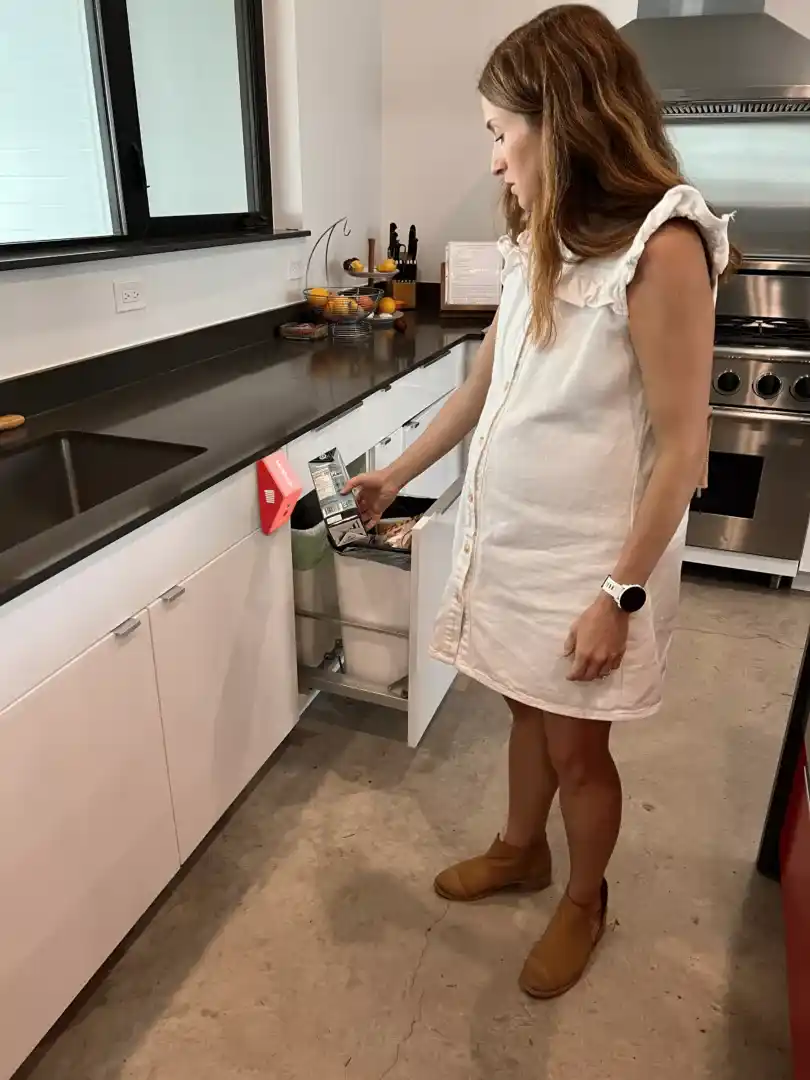Table of Contents
Binit, a Finnish startup, is pioneering the application of large language models (LLMs) to track household waste. While earlier AI hardware aimed at managing waste has seen mixed success, Binit seeks to revolutionize this space by integrating advanced image recognition capabilities, particularly leveraging commercial LLMs like OpenAI’s GPT. This analysis explores the concept, potential impact, and broader implications of Binit’s AI-powered trash tracker.
AI Powered Trash Tracker: Concept and Innovation
Binit introduces an innovative approach to household waste management, aiming to create the first household waste tracker. Unlike existing AI solutions focused on municipal or commercial waste sorting, Binit targets individual households. This niche is largely untapped and presents a unique opportunity to influence consumer behavior at the source of waste generation.
The gadget employs camera vision technology and neural networks to identify and track household waste items. By utilizing OpenAI’s GPT for image recognition, Binit claims to achieve an impressive 98% accuracy in trash recognition, a significant improvement over their initial in-house model’s 40% accuracy. This high level of precision is attributed to the extensive training data and advanced capabilities of commercial LLMs.
Functionality and User Interaction
The device, designed to be aesthetically pleasing and functional in kitchen environments, activates when users approach, allowing them to scan items before disposal. This process not only tracks the waste but also encourages users to be more mindful about their waste generation.
The scanned data is uploaded to the cloud, where it is analyzed to provide feedback and gamified insights through a companion app. This feedback loop aims to promote sustainable habits by making users aware of their waste patterns and offering suggestions for improvement.
Technological Integration and Challenges
Binit’s decision to integrate commercial LLMs, particularly OpenAI’s GPT, for image recognition is a strategic move. The robust performance of these models in recognizing common household objects, including nuanced details like brand-specific coffee cup linings, demonstrates the potential of leveraging existing advanced AI systems for specialized applications.
Despite the success, the reliance on third-party AI models poses challenges, including dependency on external developments and potential limitations in customization. Moreover, there is an underlying question about the necessity of such high-tech solutions for waste tracking. Critics argue that people are already aware of their waste habits and the need to reduce waste, likening the situation to using a sleep tracker to encourage better sleep habits despite knowing the importance of sleep.
User Engagement and Behavioral Impact
Binit addresses the behavioral aspect of waste management by introducing transparency and gamification. The weekly rubbish scores and personalized feedback aim to transform ingrained habits, as evidenced by a reported 40% reduction in mixed bin waste during pilot tests in the US. This approach aligns with the broader movement towards sustainability and mindful consumption.
The app not only tracks waste but also offers alternative solutions to reduce waste based on the user’s location. This feature could potentially foster partnerships with local businesses and influencers focused on sustainability, further enhancing the product’s impact.
Market Potential and Positioning

Binit is positioning itself not only as a consumer gadget company but also as a data provider. The aggregated data on household waste could be valuable for packaging companies and other entities interested in waste patterns and consumer behavior. This dual strategy of product and data services could bolster Binit’s market presence and revenue streams.
The startup plans a commercial launch in the US, targeting a price point of $199 for the AI hardware. This price aims to hit the “sweet spot” for smart home devices, making them accessible to a broad consumer base while maintaining profitability.
Broader Implications and Future Directions
Binit’s product aligns with a growing awareness of sustainability and the need to shift from a throwaway culture to one focused on reuse and recycling. The gadget’s ability to provide real-time feedback and suggestions for reducing waste could play a crucial role in fostering more sustainable consumption patterns.
However, there is an ongoing debate about the necessity of dedicated hardware versus a smartphone app for such functionalities. Binit plans to offer both options, catering to different user preferences and ensuring broader adoption.
The startup’s pilot programs in various cities across the US and Europe indicate a strategic approach to market entry, allowing them to gather diverse data and refine their product before a full-scale launch.
Conclusion
Binit’s AI-powered trash tracker represents a significant step forward in household waste management, leveraging advanced AI capabilities to promote sustainable habits. By addressing both the technological and behavioral aspects of waste reduction, Binit positions itself at the intersection of consumer electronics and environmental sustainability.
While challenges remain, particularly in user adoption and reliance on third-party AI models, the potential impact of such a device on waste management practices and consumer behavior is substantial. As Binit prepares for its commercial launch, it stands to contribute meaningfully to the broader efforts towards a more sustainable future.